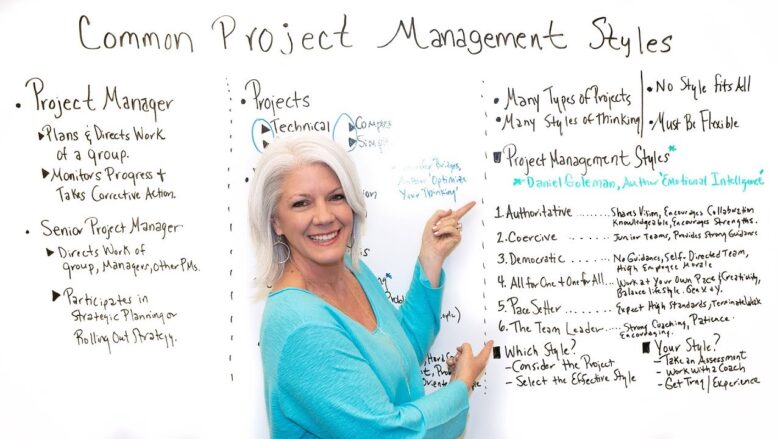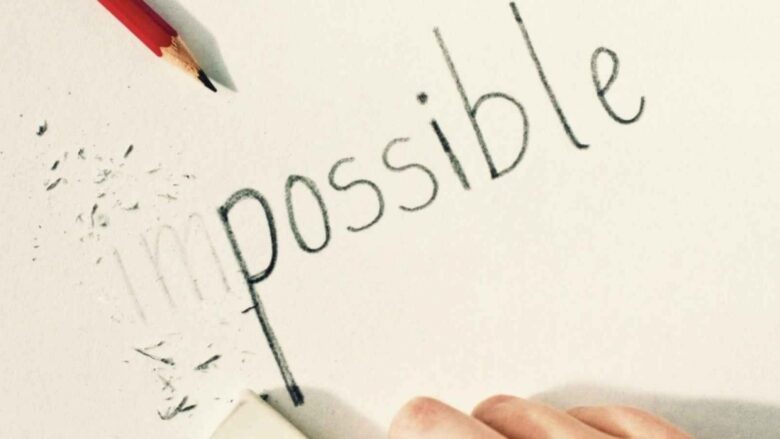Being a project manager is not just about assigning tasks, creating plans, and schedules. It also involves effective coordination of both people and processes, wise risk management, motivating the team, resolving problems, and many other things that help deliver projects on time and budget and ensure customer satisfaction.
What skills are required to manage projects seamlessly and effectively? We’ve divided them into three major categories – hard, soft skills, and personal qualities. Take a look at our overview.
Project manager’s hard (or technical) skills
Let’s start from the basics – without hard skills, a project manager won’t be able to make things happen.
1. The abilities corresponding to project management knowledge areas
The Project Management Body of Knowledge identifies 10 project management knowledge areas that contribute successful project delivery. So, to run them smoothly and efficiently, first of all, a project manager should possess skillsets and abilities related to these knowledge areas. They require proper management of things and people:
- Scope,
- Timeline,
- Cost,
- Risks,
- Quality,
- Resources,
- Communications,
- Procurement,
Finally project integration management is the area that brings together all other areas as well as helps ensure proper coordination between different project elements.
2. Knowledge of the project management methodologies

Source: projectmanager.com
All projects are different, so the approach to their orchestration will depend on the industry, a company, their duration, complexity, etc. Selecting the right methodology is one of the prerequisites for successful project completion – otherwise there can be delays, cost overrun, and even project failure. For example, managing manufacturing projects with Waterfall can be far from effective – the end users will wait for too long until the product they need is delivered. In this case, Agile will become more suitable, as it enables frequent value delivery.
That’s why a project manager should not only be familiar with existing methodologies, but also be able to choose the most applicable one for each particular project.
3. The ability to work with project management software
Modern project and resource management software www.epicflow.com have become a project manager’s right hand – they provide myriads of opportunities to ensure fruitful work on projects, efficient utilization of available resources, tracking performance and project progress, and many more. The example of such a solution is Epicflow – it’s a multi-project resource management tool that aims to ensure seamless orchestration of multiple projects running simultaneously as well as effective management of their shared resources. In addition to standard project management functionality (like creating Gantt Charts or tracking progress), it can automatically set task priorities across the whole project environment, suggest optimum resource allocation variants, perform scenario analysis, forecast bottlenecks, and more.
4. Conducting meetings

Source: thecasahoteluk.com
Meetings are an essential part of project work, starting from a kick-off meeting to regular status updates. It may seem that holding meetings isn’t a big deal, but to make them maximum effective for every participant, a project manager should be able to organize them, let everyone share their opinions, resolve conflicts if there are any, etc. At the same time, these meetings shouldn’t be overwhelming for the team members and distract them too much from their main responsibilities – there should be a balance between the value of a meeting and the time and effort spent for it.
Project manager’s soft skills
Soft skills cover a person’s workplace behavior, their personality traits, and character. At present, highly developed soft skills are even more valued than hard ones. A project manager’s job is no exception. Here are the most important ones.
1. Communication

Source: niagarainstitute.com
A project manager has to communicate a lot with different people, and the effectiveness of this interaction will have a direct impact on further workflow and even project outcomes. It’s extremely important not only to give directions to the team members, but to be able to listen to them carefully and create the atmosphere of mutual trust and be open to feedback. There should be no ambiguity – a project manager must communicate their ideas with maximum precision and make sure that everyone understands them correctly, be able to defend their point of view and at the same time be flexible and open for discussion. So, despite it seems rather simple, communication is an art that every project manager should master.
2. Negotiation
Very close to the art of communication are negotiation skills. They involve the ability to conduct a dialogue aimed at achieving mutual agreement. In the project management process, there are a lot of changes, challenges, changing requirements, work with different people, etc. For example, project managers may need to negotiate with the suppliers of tools (goods) required for project completion, with project investors, with stakeholders when significant changes to a project are needed, etc. Negotiation helps eliminate clashes of interests, provide clarity, identify opportunities, and find the most reasonable solutions.
3. Decision-making

Source: readytrainingonline.com
Decision-making is an essential part of a project manager’s work at every stage of a project lifecycle. In addition, there can be changes or challenges that require a PM’s involvement and proper reaction to them. To make effective decisions, project managers should be able to gather necessary information, analyze it, make conclusions, assess the impact of a certain decision, analyze possible alternatives, etc. In some cases, it may become necessary to consult experts, colleagues, or team members.
4. Leadership
Leadership in project management is the ability to effectively guide the team towards successful project completion. It involves the ability to create and manage a project team (or bring distributed teams together), motivate people and inspire them, assess their performance, set goals, and do everything needed to get things done by the team members. In a nutshell, a PM’s role can be described as a conductor who is guiding an orchestra. He or she helps every team member to unleash their potential and provide the best possible contribution to the successful delivery of a project.
5. Emotional intelligence
Emotional intelligence is one of the recent trends in managing project resources (the team members). It involves the ability to understand, control, and properly express one’s own emotions. EI also helps understand why other people behave in a certain way, what motivates them to do certain things. A project manager with good emotional intelligence will much better understand people he or she is dealing with and the working environment in general, which will contribute to much more fruitful interaction and collaboration.
Personal qualities and character traits
The qualities listed below will make it easier for a project manager to succeed and cope with their responsibilities effectively.
1. Sociability

Source: verywellmind.com
Project managers’ responsibilities involve being in touch with a great number of people who have different behaviors and attitudes. Communication is required at every stage of a project’s life cycle, and sociability will allow a project manager to make it maximum effective. A sociable and open person will cope with communications management much easier and more effectively. But that doesn’t mean that an introverted project manager has no chances to conduct communication successfully.
2. Optimism and enthusiasm
A project manager not only coordinates projects but also manages people involved in these projects. In addition to possessing leadership skills, a PM should be an optimistic person who is always searching for ways to achieve their goals, not afraid of challenges, and seeing opportunities in challenging situations. It’s so important, because work on projects often goes not that smoothly, and difficulties may occur at every stage of it. In addition, a project manager as a leader should be enthusiastic and in such a way motivate and inspire the other team members.
3. Stress resistance

Source: verv.com
It’s a PM’s responsibility to hold discussions with clients, stakeholders, and team members, where a lot of disputable issues or misunderstandings may arise; a project manager should be able to resolve problems and find effective solutions to them. Besides, he or she should be psychologically ready to deal with uncertainty, risks, possible changes and challenges. So, stress-resistance and the ability to think with a cool head and the ability to think with a cool head will significantly help them assess the situation and find a reasonable solution.
4. Self-control
Self-control can be described as the ability to think before acting, which is an essential quality for every leader. Decision-making is a part and parcel of a project manager’s work, but when a person is overwhelmed with emotions, he or she will probably make poor decisions. The other prerequisite for effective decision-making is analyzing possible consequences, which is only possible when a person isn’t captured by emotions and is able to control oneself.
5. Confidence

Source: inc.com
This personal quality is associated with a project manager’s leadership role. Confidence can be regarded as the basis for effective leadership. You won’t be able to make reasoned decisions, solve problems, inspire and motivate the team members, and achieve ambitious goals if you don’t believe in yourself and your own strengths. In fact, this quality is important for every specialist who wants to succeed in their career, and a project manager is not an exception.
6. Empathy
This quality is a must for effective communication and interaction with people, which is a great part of a project manager’s work. Empathy helps a person understand other people’s feelings and walk in their shoes; it’s a necessary component of trust-based relationships between a project manager and the other project participants. When a leader is empathic, it creates the atmosphere of mutual trust and facilitates more effective collaboration. Under these conditions, it’s much more safe and comfortable to take the initiative, express creative and or innovative ideas. Finally, being empathic means to be unbiased; such an environment will contribute to quick and easy conflict resolution and their minimization.
These were the most essential skills required for a successful project manager. Which of them have you already mastered?




